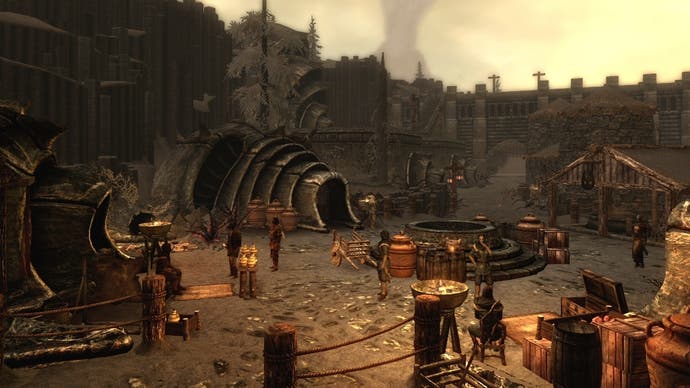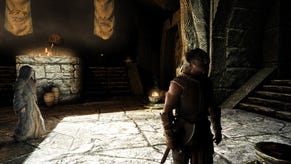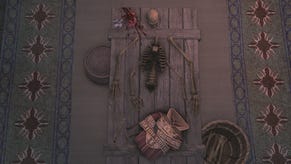The constant quest to be nosy
Why curiosity rewards the cat.
You're sitting in someone else's house. You can't help but look around briefly at your surroundings. Ooh, that looks like an interesting selection of books in the bookcase and what's that pad of paper in the corner for? I wonder what that ornament on the cabinet represents. Is there a story behind it? Then the person you're visiting leaves the room for a minute. There's a strong urge to look far more closely, isn't there? A completely inappropriate part of your brain would love to open a cupboard, just to see what's behind the door. Not for nefarious reasons, of course. I couldn't even say why it's so appealing. Is it just the fact that you can't see behind that door in the first place?
Regardless - and this is clearly for the best - social proprietary stops us from listening to that tiny inappropriate urge. At least, I hope there is that urge for you because that's often how I feel. Not that I'd ever poke around. I have manners and I'd hate it if someone did that in my home. But it's tempting, isn't it? So many things you're not supposed to do are tempting. Fortunately, this is one thing that you can do in many games and no one bats an eyelid.
It's also one of the stranger things we do in games without really thinking about it. RPGs are the worst offenders for this. Regardless of which RPG you might be thinking of, you've searched a good few dozen homes, haven't you? It's as if no one ever taught you that it was wrong to go through someone else's belongings. Within seconds of starting any Pokémon game, you're perusing someone's cupboards despite the fact the occupant of the house is standing right next to you. It's inexplicable. Surely even in a world where you capture animals for your own gain, there are some kind of basic manners for people to follow? It seems not.
It's a curious trend that follows RPGs in particular wherever you go. Indeed, many games depend on you to search each home thoroughly. When starting out, you'll often find some unsuspecting homeowner's stash of cash in a cupboard and it'll be your best route to buying a new weapon. It's not theft. It's, erm, a form of curiosity that also happens to support the soon-to-be saviour of the world? We'll go with that. Other times, a quest might require you to search through someone's belongings. Not once is there a moment where you're questioned on the morality behind doing so. It's all a bit rude, isn't it? I'd be mortified if a friend did that in my house and vice versa, regardless of which kingdom's fate hung in the balance. It's just not good form.
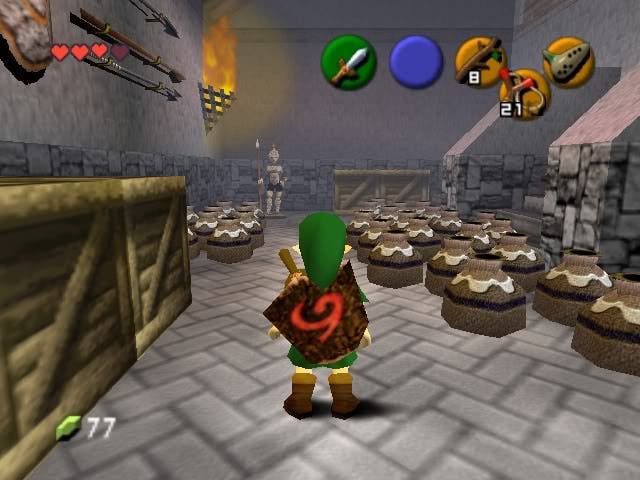
There are some notable but rare exceptions. The Skyrim tries its best, for instance. People really don't like it when you nose around in their homes. Text changes to red when you're about to swipe something and, invariably, the homeowner will question just what you're doing and why. It's a reasonable question. Shame should stop you, but hey, there are dragons to kill and time's a wastin' - that seemingly pointless chalice might be useful in the future. Probably.
Games are full of things that we'd never do in real life. The Grand Theft Auto series is, hopefully, absolutely rammed with things you'd never actually do. Surely looking through someone's personal possessions is like kicking a dog in a game though? Something that, even though you know it's not real, you still feel oddly remorseful for. It should feel like an intimate kind of crime. But it doesn't though, does it? Instead, you're frequently rewarded for pushing your luck.
In Skyrim, by poking around, you find things that aren't vital to the plot, but are interesting nonetheless. Sometimes, you'll uncover a side quest, all because you pushed the boundaries of good manners. That probably wouldn't happen in real life. Not unless your friend was incredibly understanding of the human condition and had a lot of inconsequential dramas that needed tidying up by a local hero.
So, what makes us want to do it? Rather appropriately, curiosity got the better of me and I googled for more information. According to Psychology Today, our brains are hardwired for this kind of thing. To put it in a more appealing way, we're set-up to be constantly seeking out knowledge.
The driver for all is this is the 'information gap' between what we know and what we want to know. Curiosity is, essentially, when you focus on a gap in your knowledge, and have to pursue it. You'd think that'd just be solely used for 'useful' stuff, but it's never-ending, alas. We always want to know more, even if it's absolutely pointless information like what's round the next corner.
Here's a nice way of thinking about it: we're addicted to learning, more than anything else in the world, all because we're naturally curious. It's just that we don't often realise we're doing it. We'll never run out of knowledge to seek, and we'll never be fully satisfied.
To an extent, games are helping us. Most games have an ending. They bring us closure, and satisfaction. Even games like Skyrim - vastly wondrous that they are - do have limits. Few of us will explore every single nook and cranny but it is technically possible. Unlike in life. In life, there's constant evolution and growth, and there's always something new to pursue.
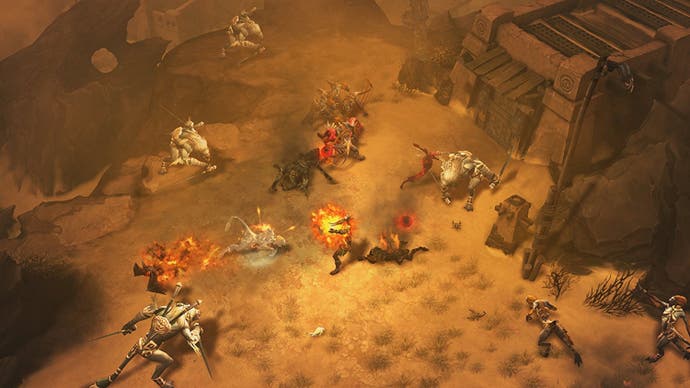
The same article in Psychology Today explains that curiosity is addictive because it's rewarding but never quite rewarding enough. New activities are instantly exciting, but the more you do them, the more boring they become. But would that be the case if you were genuinely searching someone's house? When playing a game, you might find yourself rooting through every cupboard at first but eventually, you tire of it because the minuscule thrill is no longer there. It's a principle that holds for sprawling loot chasing games like the Diablo series. The constant trickle of new stuff is initially exciting but ultimately, more than a trifle dissatisfying in huge doses.
Psychologist Elkhonon Goldberg, writing in The New Executive Brain, suggests that Christopher Columbus wouldn't have embarked on his travels if he hadn't been 'temperamentally dysphoric' and in need of seeking something new. It continues that if Prozac had been available in those days, he might not have felt the urge to explore at all. That's controversial, to say the least, but then how quickly can one realise they're on an inappropriate antidepressant when they feel an empty disconnection to the world? Dysphoria is an extreme form of unease and dissatisfaction, but such dissatisfaction can lead us to wanting more from life. Staying within one's 'comfort zone' is rarely as satisfying as pushing the boundaries once in a while.
And this is a principle that transfers perfectly to games, and provides a safe and relatively inexpensive form of exploration. Discovering 'new' places is something that few of us will achieve in reality, but in games? That's simple enough to do and still scratches that hardwired itch.
What does that have to do with looking around someone's house? Well, when you think about it, exploring any game world is akin to exploring someone's home. Designers and developers have painstakingly created a world full of interesting knick-knacks and insights into their personality. The only difference here is that you're allowed to delve much deeper than you would in someone's home. No one will complain here because they're showing off their wares and creations proudly.
Perhaps that's why, when it comes to looking through an in-game home, it feels so reasonable and logical. All this time, we've been exploring levels trying to find the next Chaos Emerald, or exploring forests in a bid to find treasure. When it comes to stepping across the threshold of one's home, it's just an extension of what we've been doing all along. It's not nosiness or bad manners. It's simply curiosity. At least that's what I'll tell them in court.
